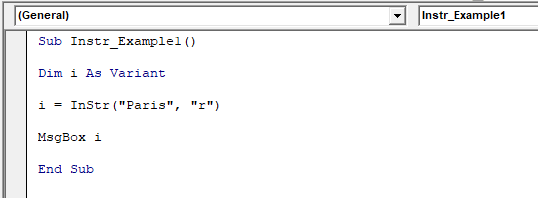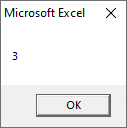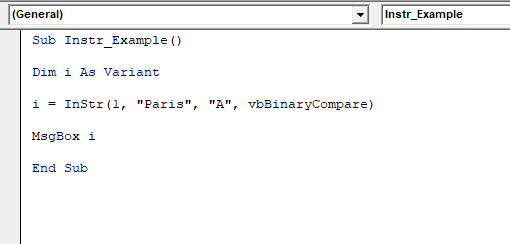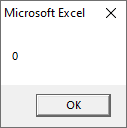Excel VBA InStrThe VBA InStr function is used to check if a string is found in another line of text. And it returns the first position of it's occur operations. It returns 0 if the text is not found; otherwise, it returns the character where the text is found. The VBA InStr function performs exact matches or inexact matching by using the Operators. And by using the Wildcards, it performs the pattern matching. The InStr is a VBA function but not a worksheet function. That means we cannot use the Instr function within the worksheet. SyntaxExplanation
The compare argument settings are given in the below table:
Some important points are:
ExamplesExample 1: Let's find the position of the character "r" in the word "Paris" follow the following code, such as: 
Now run the above code using the F5 key, or you can also run the code manually, and you will get the following output, such as: 
Example 2: Let's find the position of the character "A" in the word "Paris". We will use the compare argument as vbBinaryCompare, as shown in the below screenshot: 
Now execute the above program, the supplied compare argument as vbBinaryCompare InStr function returns the zero because there is no uppercase "A" letter exists in the word "Paris". 
Next TopicVBA MsgBox
|
 For Videos Join Our Youtube Channel: Join Now
For Videos Join Our Youtube Channel: Join Now
Feedback
- Send your Feedback to [email protected]
Help Others, Please Share










